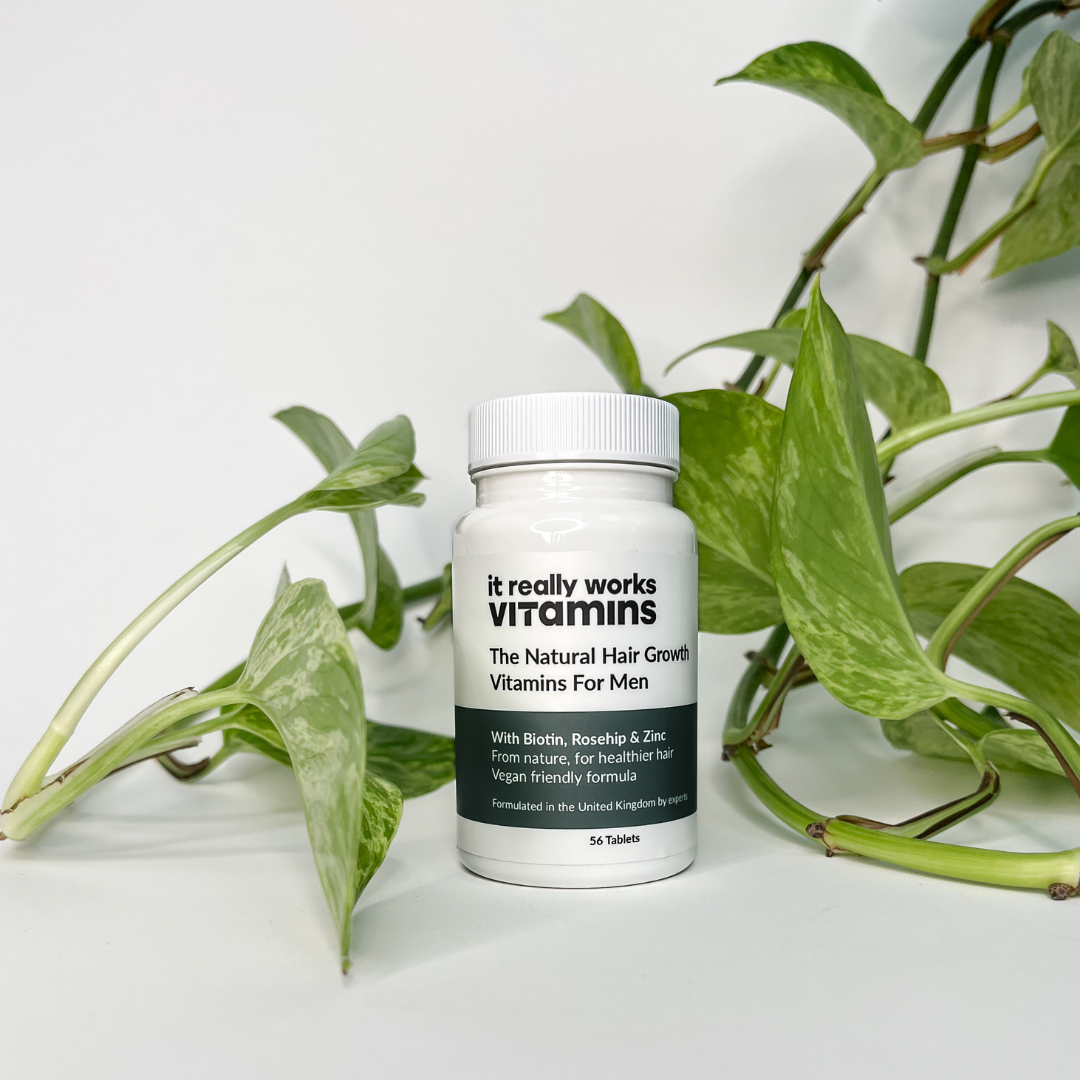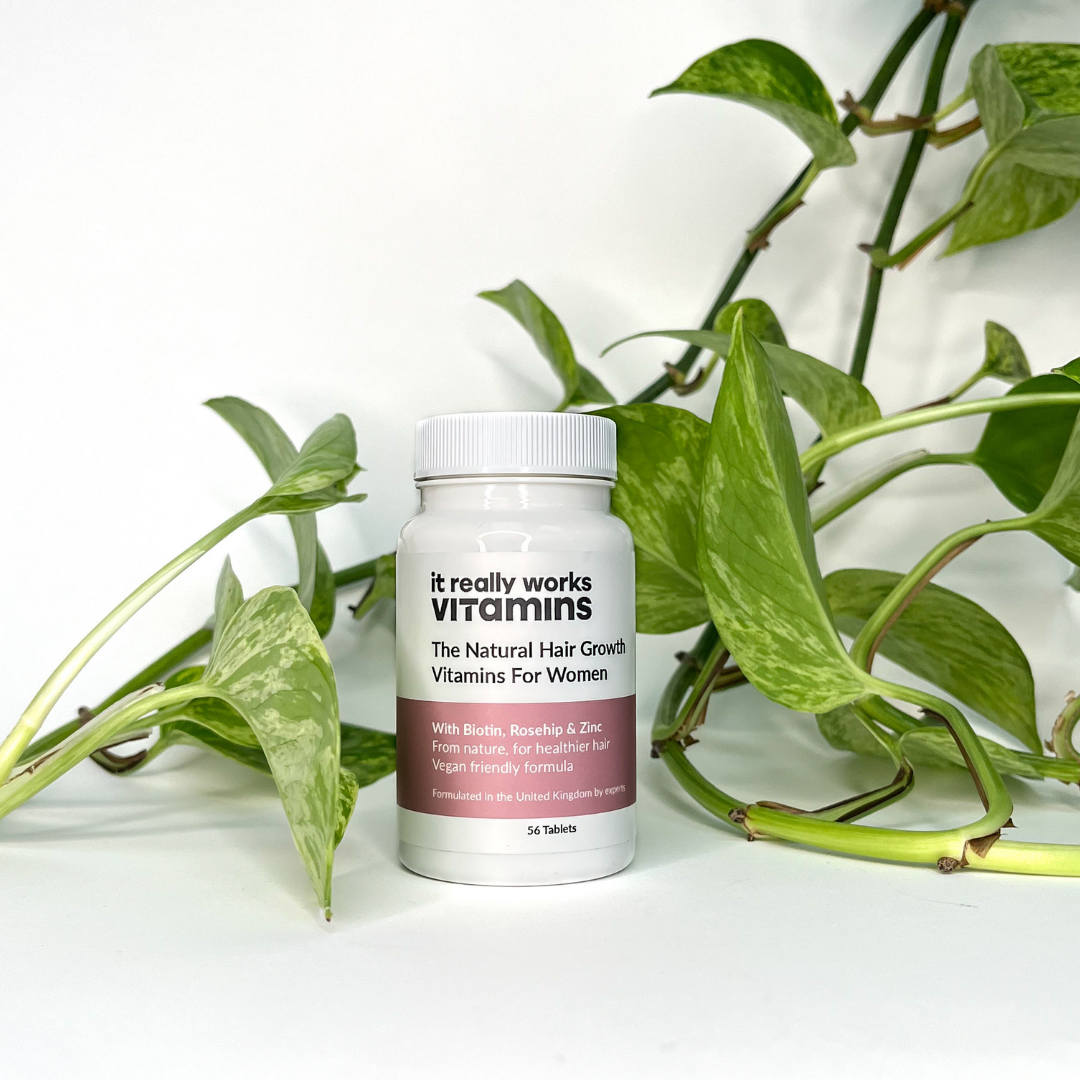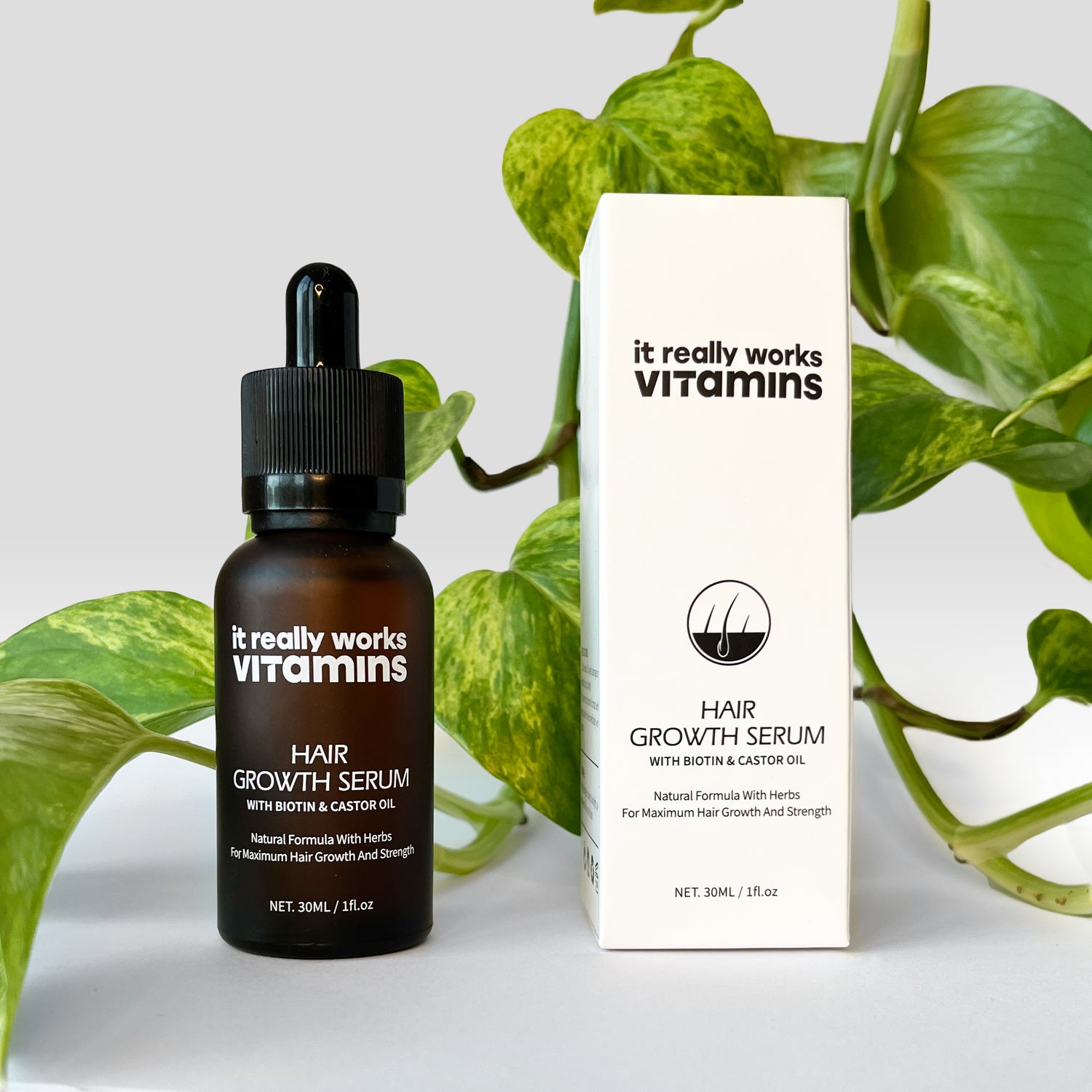Dandruff is an incredibly common skin condition characterised by a few key symptoms. If you have dandruff, you are likely to notice white or grey flakes from the scalp in your hair or on your shoulders. Your head may also feel dry or very itchy.
Dandruff can increase hair loss, and, we will go over some possible treatments and natural home remedies for the condition.
So what causes dandruff? There are a variety of underlying issues that can cause dandruff, which we will cover thoroughly but generally, it is thought to be caused by dead skin cells on the scalp shedding at a faster than usual rate.
These cells then clump together and form the flakes associated with the condition.
Dandruff can be embarrassing, but there’s no need to be ashamed – it is extremely common and something many people deal with. In fact, up to 40% of adults over the age of 30 are affected by dandruff.
We want to go over a few of the possible underlying causes of the condition and address the different symptoms these may cause, and how best to treat them.

We will also explore how dandruff can increase hair loss, and finally, we will go over some possible treatments and natural home remedies for the condition.
First of all, let’s take a look at some of the potential underlying causes of dandruff.
- Seborrheic dermatitis
- Contact dermatitis
- Psoriasis
- Fungus
- Not shampooing often enough
- Dry skin
There are two common skin conditions that may be behind your scalp’s woes, which both come under the general bracket of dermatitis (more often known as eczema).
Seborrheic dermatitis is a common cause of dandruff and affects up to five in every 100 people in the UK. The condition is caused by an overreaction to a yeast that is naturally present on the skin, and the main symptom is a red, and scaly rash. Seborrheic dermatitis tends to occur in oily areas of the body such as the eyelids, around the ears and of course, on the scalp.

Contact dermatitis is similar, but is instead caused by the skin coming into contact with irritants or allergens. Common irritants include soaps, detergents, and certain ingredients used in toiletries or cosmetics.
Another possible underlying cause of dandruff is psoriasis. The main symptom of this condition is dry, red skin covered in silver scales, which may also be sore or itchy.
There are many different types of psoriasis, all of which have slightly varying symptoms. One of these types is scalp psoriasis. It can flare up on parts of or the entire scalp and in extreme cases can cause temporary hair loss

A certain type of fungus can also lead to dandruff. Most people’s scalps are home to a common fungus called malassezia, and for many of us, it doesn’t cause any problems at all. However, it is thought that in a person who develops dandruff, the immune system may overreact to the fungus, which in turn causes dandruff to develop.
Let’s be clear on this – having dandruff does not mean your hair or scalp is ‘dirty’ or unhygienic, but not shampooing the hair enough can have a detrimental effect on the scalp and is one of the factors that can cause dandruff to develop.
This happens due to a build-up of excess dead skin cells, which is exactly what causes flakes of dandruff to form . By shampooing more regularly, those excess cells can be washed away, preventing this from occurring.
Lastly, a flaky scalp may simply be caused by dry skin. This isn’t technically dandruff, but can present very similar symptoms such as itching, flaking and irritation. If you suffer from dry skin on other areas of your body, it’s worth considering that your scalp may simply be lacking in moisture. If this is the case, symptoms can be exacerbated by things like dry or wintry conditions or excessive hair washing stripping the moisture from your scalp

If this is the case for you, it may beneficial to wash your hair less frequently to prevent natural oils and moisture from being stripped.
Evidently, it’s important to be aware of the cause of your dandruff, as everything requires a different approach. Some issues may benefit from more frequent washing, and others may require you to wash your hair less often! We’ll discuss this again in a little more detail soon.
So now we’ve established some of the most common causes of dandruff, but if you’re watching this video, you probably want to know if dandruff causes hair loss.
Luckily, the answer is quite a simple one: it can do, but as long as you are addressing the cause of your dandruff, you needn’t worry about it too much.Let’s go over a few ways in which dandruff may lead to increased hair loss.
- Damage to follicles due to scratching
- Ringworm
- Scalp psoriasis
- Seborrheic dermatitis
The most obvious way is through scratching. As we mentioned earlier, dandruff can be extremely itchy. If you are scratching your scalp hard or very regularly, it could potentially inflame and damage the hair follicles. This can lead to slowed hair growth and thinning or weak hair (https://www.medicalnewstoday.com/articles/326960.php#is-there-a-link).

And unfortunately, regular itching leads to what is known as the ‘itch/scratch’ cycle, which will be painfully familiar to anyone who suffers from eczema.
In short, this refers to how the body reacts to scratching in a way that promotes further itching. When you scratch your skin, your body releases inflammatory chemicals that cause redness and swelling. This stimulates the nerves and causes further itchiness which, of course, makes you want to scratch even more, and the cycle continues.
So naturally, breaking that cycle of scratching your scalp will be really beneficial all-round.
Secondly, there are certain underlying causes of dandruff that can cause hair loss directly.
For example, fungal infections such as ringworm, scalp psoriasis, seborrheic dermatitis can all lead to flaking and scales so severe that the hair may fall out in clumps as a direct result.
Lastly, it’s important to note that if dandruff is left untreated for too long, it can lead to a condition called pityriasis amiantacea, which leads to excessive silver or yellow scales on the scalp, tightly encasing the hair’s roots. This condition is most likely to co-exist with seborrheic dermatitis or psoriasis

Unfortunately, it can lead to hair loss when the crusts formed around the hairs are removed, but the good news it, this is usually reversible!
In summary, unless you are suffering terribly with dandruff and scratching your head a lot, you probably don’t need to be too concerned. However, if you’re already experiencing androgenic hair loss (another term for genetically inherited hair-loss) it might be a good idea to really work on minimising scratching to prevent the condition from being exacerbated. You don’t want to be putting any extra stress on your scalp and hair by damaging your follicles.
So, if you are experiencing dandruff, what can you actually do about it? There are many different approaches you can try, and it’s very much a case of trial and error.
- Shampoo regularly
- Moisturise
- Try a hair oil or scalp treatment
- Specialist dandruff shampoo
- Identify irritants
- Manage stress
- Mild exposure to sunlight 45

The first thing you can do to combat dandruff is to try shampooing your hair more regularly, if you don’t already wash every day or two.
All we seem to hear nowadays is how it’s best to leave your hair longer between washes, but if you have dandruff that isn’t caused by dry skin, it probably isn’t doing you any favours.
There is no one-size-fits all approach when it comes to how frequently you should be washing your hair, but there are a few ways to figure out if your scalp is ready for a good cleanse.
You may notice symptoms like itchiness, an unpleasant scent or tenderness of the hair follicles. Resist the urge to reach for the dry shampoo when these symptoms occur – your hair and scalp will thank you for it
How frequently you should wash your hair also depends on your skin type – for example as we’ve already mentioned, people with dry skin may find that over-washing can dry out the scalp more and exacerbate the symptoms of dandruff, whereas those with oily skin might find it beneficial to wash daily. It all depends on your own skin type and the underlying cause of your dandruff.

Speaking of dry skin, if this is the cause of your scalp flaking, you need to think about how you can lock some extra moisture into your scalp. There are a few ways this can be done.
Firstly, consider the shampoo you’re using, and consider changing to a more natural product. The most important thing is to find one that is sulphate free, but shampoos that are paraben and fragrance free can also be really good for scalp health, as they are less likely to strip your scalp of the natural oils that keep it moisturised.
On a side note, this can also be a good thing to try is you’re suffering with contact dermatitis as these chemicals in your shampoos, conditioners and hair products are pretty common irritants.
Secondly, it might be useful to try a hair oil or scalp treatment to really give your skin that extra boost of moisture. Take a look at the article linked above for some great examples of treatments and sulphate free shampoos.
Speaking of shampoos, one of the most well-known and trusted remedies for dandruff is using shampoos that are specifically designed to help the condition.

These shampoos work by including special dandruff-fighting ingredients, such as selenium sulphide, which is particularly useful in fighting off seborrheic dermatitis and zinc pyrithione, which prevents the scalps Malassezia (which we mentioned earlier can be a key cause of dandruff) from irritating the scalp
Head and Shoulders is the most commonly known and well-used dandruff-specific shampoo, so this may well be worth a try!
If a regular anti-dandruff shampoo just isn’t cutting it, you can also get stronger versions with higher concentrations of these ingredients prescribed from the doctor.
The next thing you can try, especially if you suspect contact dermatitis, is cutting out irritants.
If you often use a lot of different products on your hair, it could be really useful to try cutting them out one at a time to see if this has any effect on your symptoms.
From a different perspective, one thing you may not have considered the effect of is stress.
But unfortunately, it’s something worth thinking about, as being stressed out can wreak absolute havoc on your scalp.
For example, overheating, a common stress symptom cultivates ideal conditions for Malassezia to thrive and produce increased flaking
Stress can also lead to increased itching of the scalp.
It is not really known why this occurs, but as we mentioned earlier, increased itchiness can lead to more scratching, which leads to even further itching, and so on. Scratching aggravates dandruff and as we already know, can even lead to hair loss.
So trying to keep your stress at a manageable level may help your dandruff by reducing itchiness and in turn, scratching, inflammation and ultimately hair loss.
There are many ways to reduce stress, and what works for you is very individual.
Try setting aside some time each day solely for yourself and do something relaxing; read a book, have a bubble bath or do a guided meditation, for example. If your stress and anxiety is unmanageable, visit your Doctor for further help and guidance.
The next remedy you could try is a bit of a controversial one, but might still be worth looking into; exposure to sunlight is sometimes recommended for conditions such as eczema and psoriasis
However, it’s important to note that this does not mean it will be beneficial to go out and sunbathe – it doesn’t take long for the sun’s UV rays to start damaging the skin, and of course this is something we really want to avoid. Instead, try just spending a little time outside every day.
If you like natural home remedies, there are a few lovely homemade scalp treatments that may be beneficial if you are suffering from dandruff. Let’s go over some of these!

- Tea tree oil
- Oatmeal
- Apple cider vinegar
The first amazing dandruff-fighting natural ingredient we’re going to talk about is tea tree oil. A studyshowed that tea tree oil can really reduce the severity of dandruff, so simply adding a few drops to your shampoo could be beneficial.
Tea tree oil has a whole host of benefits. For example, it is anti-fungal and can help reduce the over-production of dead skin cells that form dandruff when they clump together.
Secondly, it can treat the symptoms of dandruff such as an itchy scalp, as it is both anti-bacterial and anti-inflammatory.
Finally, tea tree oil can moisturise the scalp, which also makes it a great option if dry skin is the cause of your flaky scalp.
So whatever, the cause of your dandruff, tea tree oil is likely to be useful in treating it in some way, shape or form!
The second really effective natural remedy we’re going to discuss is an oatmeal hair mask. Oatmeal is an all-round wonder ingredient and is useful for treating so many different skin issues! Oatmeal is particularly great for dandruff as it can balance the scalp’s pH levels, reducing itchiness, which really is half of the battle due to that pesky itch/scratch cycle!
This recipe from Vogue is a really great, easy one to try out.
All you need to do is simply mix a cup of oatmeal with two cups of boiling water and let it sit for 15 minutes. Then, drain the mixture, add a teaspoon of apple cider vinegar to the oatmeal (apple cider vinegar is a great addition due to its anti-bacterial, anti-fungal and anti-inflammatory properties). Apply the mixture to your scalp and leave for five minutes before rinsing.
There are also certain dietary changes that may be useful in combatting dandruff. The key point here is to try to avoid inflammatory foods as much as possible.as Foods like animal fats, certain carbohydrates and fast foods can be inflammatory and lead to insulin spikes, so it’s best to stay away from things like white bread, carbonated drinks and cookies, for example

- Berries
- Apples
- Avocados
- Sweet potatoes
- Broccoli
- Nuts
- Beans
- Whole grains
- Dark chocolate

If you want to give an anti-inflammatory diet a try, you want to be eating foods that are rich in antioxidants and omega-3 fatty acids. Some antioxidant rich foods are berries, apples, avocados, sweet potatoes, broccoli, nuts, beans, whole grains and dark chocolate.
- Oily fish
- Flaxseed
- Walnuts
Foods rich in omega-3 include oily fish such as salmon or anchovies, flaxseed and walnuts
- Ginger
- Chickpeas
- Sunflower seeds
- Papaya
- Garlic
- Wheat germ
- Apples

Examples of foods that may be beneficial in preventing and combatting dandruff specifically include ginger, chickpeas, sunflower seeds, papaya, garlic, wheat germ and apples.
It’s important to note, however, that there isn’t a whole load of evidence that dietary changes can be useful in combatting dandruff, but making our diets a bit healthier isn’t likely to do any harm, so it’s definitely worth a try! Besides, there are other benefits of following an anti-inflammatory diet such as reducing low-grade chronic inflammation, which is a risk factor for many major diseases.
Natural remedies are a great starting point when it comes to the treatment of dandruff, but if it’s really stubborn, it may be useful to speak to your doctor about a stronger treatment.
Visit your doctor if you’re not sure of what’s causing your dandruff – they may be able to help you figure this out and offer a more effective treatment for your isssue, such as a strong anti-dandruff shampoo.
So, to sum up, can dandruff lead to hair loss?
Yes, but there isn’t a strong link. The most likely connection is that the itching associated with dandruff causing us to scratch our heads and damage the hair follicles.
It isn’t something you really need to worry about too much unless your dandruff is particularly severe or if you’re already dealing with genetic hair loss.
Let us know how you get on in the comments if you try any of the remedies discussed in today’s video, or if you have any methods you swear by that we haven’t mentioned!
If you’re worried about hair loss, head over to www.itreallyworksvitamins.com and consider giving our vitamins a try! Our products include an incredible 22 essential nutrients to nurture the hair, including biotin, folic acid, rosehip, magnesium and zinc, and did we mention they’re completely vegan.
What’s more, if you don’t have noticeably thicker and healthier hair within 90 days of use, we will refund you, so you’ve got nothing to lose.




